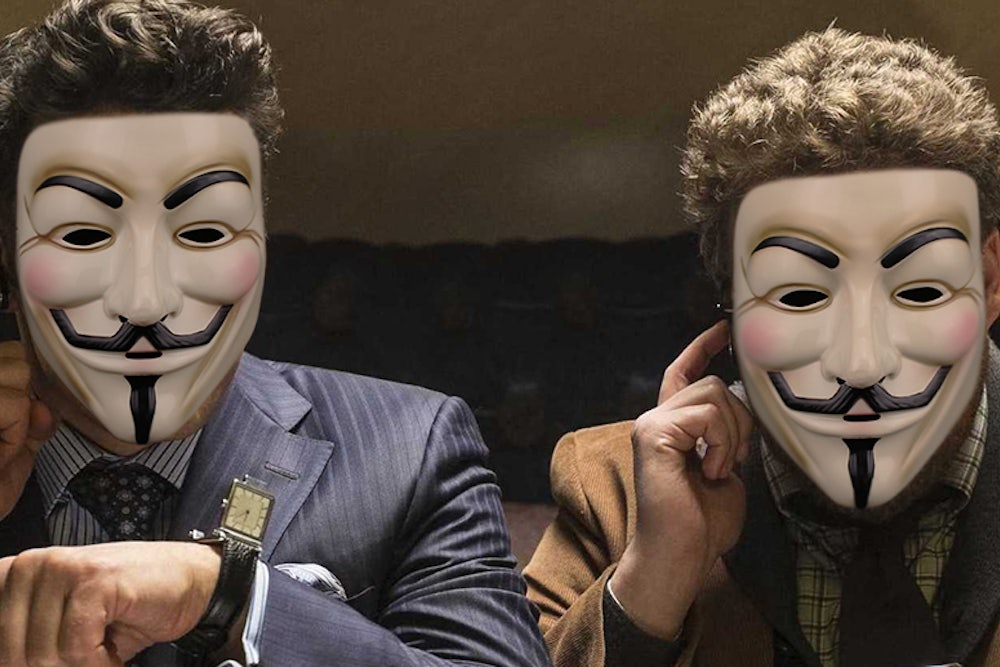If the plot of Sony Pictures’ The Interview wasn't about two American journalists attempting to assassinate Kim Jong-un, but instead about what actually happened this week—presumably North Korean hackers extorting American entertainment companies to the tune of hundreds of millions of dollars by leaking damaging emails and threatening violence upon moviegoers—it would be seem as unbelievable as, well, a boffo Seth Rogen film.
But the boffo nature of this week's events obscures a real domestic vulnerability. Capitalism fuels American society, but it also determines liability. If the private companies that produce and distribute cultural artifacts or material goods, expecting profits, believe that liability will swallow those profits, they’ll stop producing and distributing those items. If you’re a terrorist and you can credibly threaten to incur those liabilities, then you can theoretically censor American society.
Consider the difference between issuing a fatwa against Salman Rushdie and credibly threatening to bomb retail book stores that sell The Satanic Verses. One creates a single martyr, with a bestseller. The other might have actually succeeded in silencing him.
As absurd as the campaign to censor The Interview has been, and as farfetched as the actual threats might be, the theory behind both actually makes perfect sense. If you stand in Sony’s shoes, you see there’s no easy way around it. Yesterday, I assumed Sony would respond by licensing the film to Amazon and Apple and encouraging people to rent it in their homes. It’s easy to threaten 100 people trapped in a theater; it’s impossible to threaten them if they’re streaming the film in their living rooms. But dispersing one set of hostages just encourages the taking of different hostages—employees at Sony headquarters; an Amazon warehouse; an Apple Store full of customers.
I assume that’s why Sony has put The Interview on ice indefinitely. And I assume it’s why a government intervention, as imagined by New York magazine’s Jonathan Chait, wouldn’t actually accomplish very much. Assuming the threat is credible—a huge assumption, of course—the liability problem doesn’t disappear. If Sony sells the movie to the government, it’s still facilitating distribution. If the government backstops Sony against liability, it must extend the same offer to the big theater chains, too, and perhaps eventually to stores that sell The Interview on DVD, airlines that screen The Interview on long flights, Netflix, Amazon, and so on down the line. Redirecting the ransom in this way encourages more hostage taking. It might work in the case of one movie, but would be unsustainable in a world of constant threats.
The key is to get the movie out into the open in a way that disguises culpability for releasing it. At the risk of encouraging criminal activity, and exposing my ignorance of hacking and film production, the way to do this would be for Anonymous, or some other rogue group of hackers, to also hack Sony, and place a file of The Interview online for free download.
At least, that’s the ending I'd go with, if I were making the movie version of this cyberdrama. In the real world, Sony should probably just heed the Department of Homeland Security, which has found “no credible intelligence” that theaters showing The Interview will be in any danger, and release The Interview. If DHS is wrong, they’ll have a very strong defense in court.
